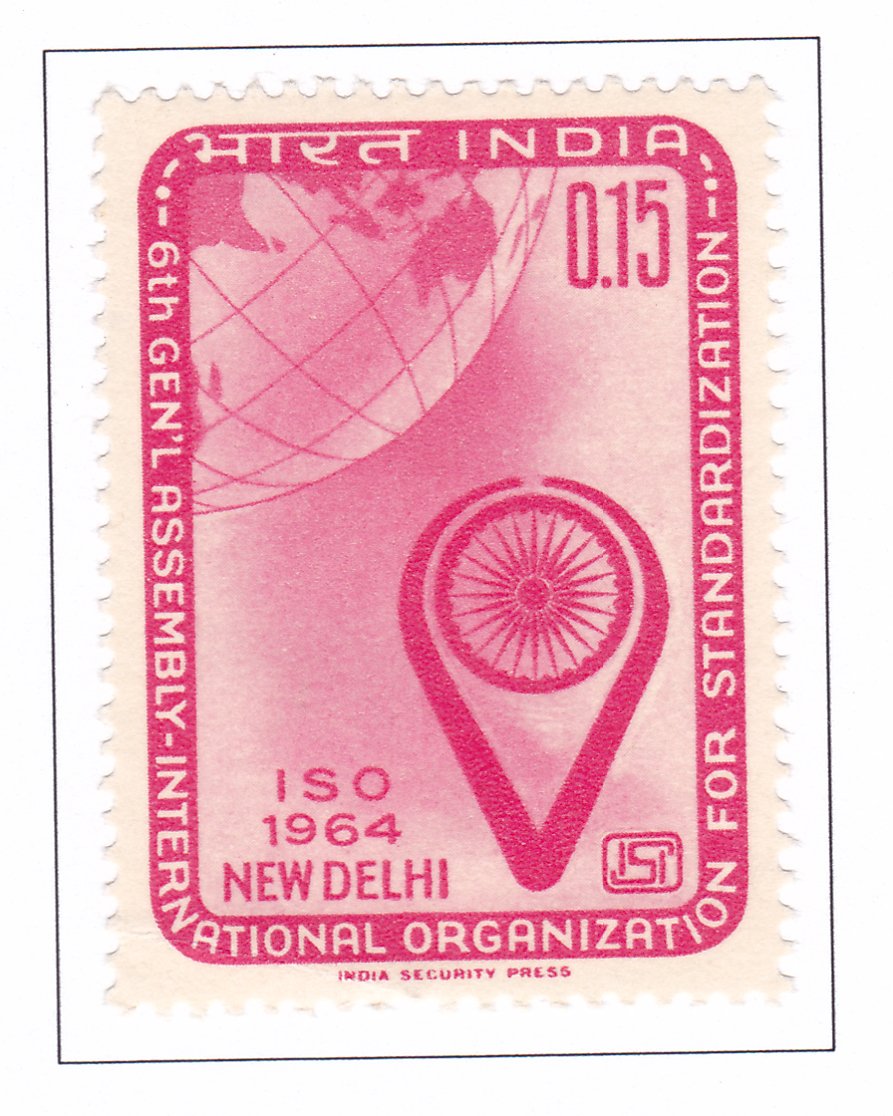6th International Organization for Standardization

Technical Data
| Date of Issue | November 9, 1964 |
|---|---|
| Denomination | INR 0.15 |
| Quantity | 1,500,000 |
| Perforation | comb 13 x 13½ |
| Printer | Security Printing Press, Nashik |
| Watermark | No Watermark |
| Colors | Carmine |
| Catalog Codes |
Michel IN 377 Stamp Number IN 392 Yvert et Tellier IN 178 Stanley Gibbons IN 491 |
| Themes | Globes | Organizations | Seals(Emblems) |
The 6th General Assembly of the International Organization for Standardization (ISO) held on November 9, 1964, marked a significant event in the realm of international standardization. Established in 1946 as the successor to the International Federation of the National Standardization Association (ISA), ISO aims to promote the development of global standards to facilitate international exchange of goods and services and foster cooperation in intellectual, scientific, technological, and economic endeavors.
With a membership comprising 51 Standards Organizations from different countries, ISO operates through 108 Technical Committees, their sub-committees, and working groups. India has been actively involved in ISO since its inception, with the Indian Standards Institution (ISI) participating in 78 out of 108 technical committees and holding secretariats for three ISO Technical Committees, along with four sub-committees and six working groups.
The New Delhi meeting of the ISO General Assembly marked a milestone as the first such gathering held in Asia. Previous assemblies took place in Paris (1949), New York (1952), Stockholm (1955), Harrogate (1958), and Helsinki (1961). The technical discussions at the New Delhi meeting covered various fields of interest to India, including agricultural food products, steel, rubber, vetiver oil, screw threads, bolts, nuts, accessories, and sampling of iron and manganese ores.
In commemoration of this significant event, the Posts and Telegraphs Department issued a special postage stamp, highlighting India’s role as the host of the 6th General Assembly of ISO on November 9, 1964. This stamp serves as a testament to the importance of international standardization in industrial development and the promotion of global trade.
